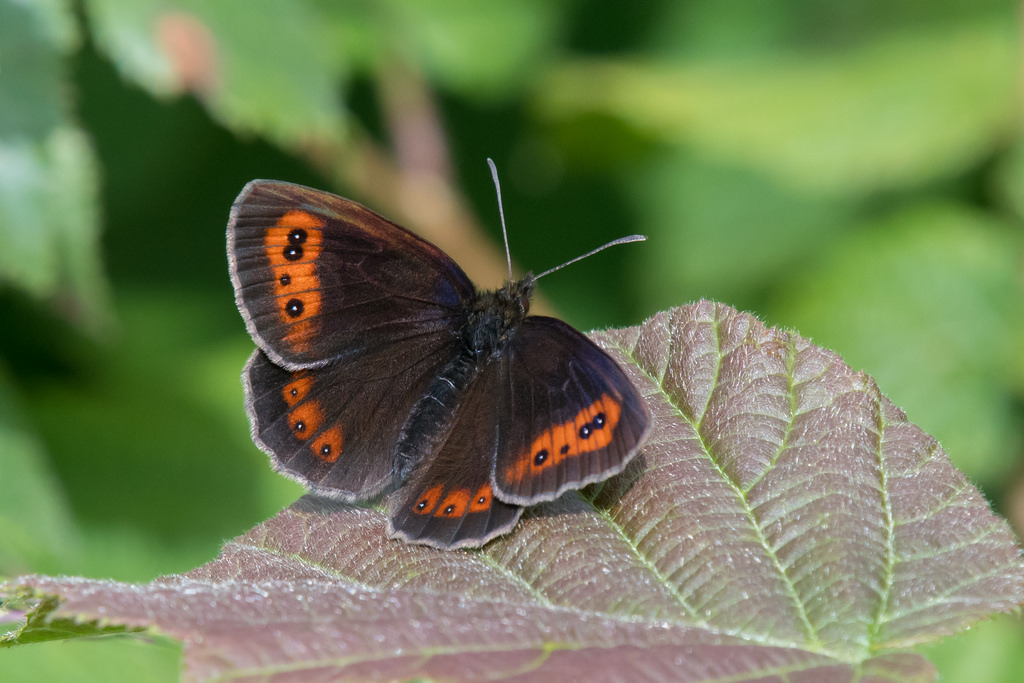
Tim writes: I visited Smardale Gill in Cumbria in late July and managed to find several Scotch Argus (Erebia aethiops) butterflies just emerging. This male is absolutely pristine with not a scratch nor scale out of place. It still has that iridescent bloom that freshly emerged butterflies show, but which disappears after a few hours.
Although they are quite widespread in Scotland there are only two native sites in England, both in Cumbria. Although it has appeared in a few former haunts in the Yorkshire Dales recently but it is likely that these had a helping hand. In England, the caterpillars only feed on Blue Moor Grass (Sesleria albicans) which is quite a rare northern limestone speciality. In Scotland they feed on Purple Moor Grass (Molinia caerulea) which is found in acidic (not limestone) habitats.
The name Argus comes from the creature from Greek mythology with a hundred eyes, who was tasked by Hera with guarding Io, the object of her husband Zeus’s desires. The name Argus is applied to numerous animals which have multiple eyespots.
The name Erebia comes from Erebus, the dark region between earth and Hades, the underworld. Aethiops means Ethiopian.
Taken with Nikon D500 with Nikkor 300mm f4 lens plus 1.4x converter at f10 1/640 second ISO 1250
Mark writes: I watched these striking butterflies in Speyside and Deeside last week. They are a cut above the Meadow Browns which inhabit my garden.
Tim Melling is at the Bird Fair this week – by the time this post appears he will already have given seven talks but if you’ve missed him he has another four on Sunday! The busiest man at the Bird Fair?
[registration_form]
I find those sentences about the caterpillars’ diet preferences in England and Scotland fascinating. Why would they only eat blue moor grass in England? There’s plenty of purple moor grass about. I wonder if there are different sub-populations with different food plants. Perhaps trying to establish a new English population from Scottish stock would be worth a try…